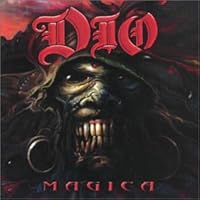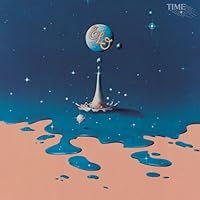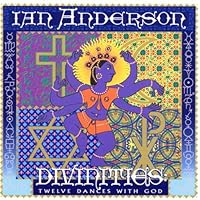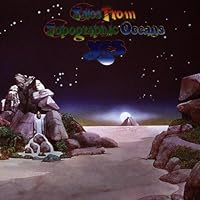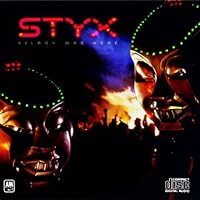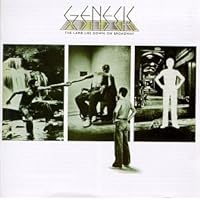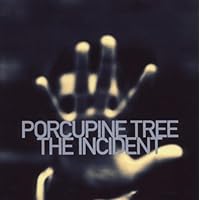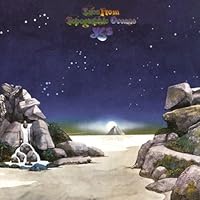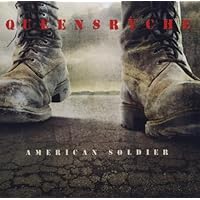
Average Reviews:

(More customer reviews)Queensrÿche has had quite a roller coaster ride over the past decade. From 1999-2009, the band featured three different sets of songwriters before settling in with producer/songwriter Jason Slater in 2006 for Operation: Mindcrime II. With Slater back for round two with lead singer Geoff Tate and company, Queensrÿche has clearly found its creative legs on American Soldier, a concept record detailing the experiences of United States servicemen and women.
Starting with the "on your feet!" call of a boot camp drill instructor in "Sliver," American Soldier takes the listener on a unique journey of hard rock bombardment. Featuring a plethora of heavy riffing throughout the album, particularly on the rockers "Man Down!" and "Unafraid," American Soldier embraces Queensrÿche's heavier roots, without forgetting the epic side of the band.
"At 30,000 Ft.," a track written from the point of view of a bomber pilot will remind fans of the grand "Anybody Listening?" off of 1990's Empire, whereas the moody "A Dead Man's Words" is reminiscent of the song "Promised Land." In fact, in a nutshell, American Soldier feels like a hybrid between the darkness of 1994's Promised Land with a good injection of modern musical angst.
American Soldier was written primarily by producer Slater (with Tate responsible for lyrics), although former Queensrÿche axeman and producer Kelly Gray (Q2k, Live Evolution) contributed some tracks ("Hundred Mile Stare" and the aforementioned "Man Down!"). Additionally, Gray's other band, Slave to the System, which features Queensrÿche drummer Scott Rockenfield and Brother Cane frontman/guitarist Damon Johnson, also contributed two songs - the battle haze-influenced "Middle of Hell" (featuring Tate on saxophone dueling with Wilton on guitar) and the touching father-daughter ballad (sung by Tate and his daughter, Emily), "Home Again."
Tate (saxophone), Wilton (guitars), Rockenfield (drums) and bassist Eddie Jackson deliver dynamic musical performances, arguably their strongest in 15 years. From Rockenfield's military cadence beat behind Wilton's solo in the emotionally-charged "The Killer," to Jackson's thundering groove throughout American Soldier, the band play more cohesively than they have in years, distinctively Queensrÿche, yet modern and relevant despite being around for 28 years.
Most fans of Queensrÿche would probably agree Tate is at his best when he is inspired and writes to a theme, and that holds true with American Soldier. Crafted from the stories of soldiers (including Tate's own father), the best of Geoff Tate is on display, telling emotional stories from a number of different perspectives and delivering them with conviction.
The unique factor, however, is that Tate takes care not to inject much of his own opinion, giving the listener true first-hand feel of the emotions soldiers experience in conflict. Throw in various interview clips from soldiers Tate spoke with entwining with the songs, and the emotional impact of American Soldier is undeniable.
So what's the downside? While the record features great instrumentation, including classic guitar solos by Wilton, the trademark vocals of Tate are always the first thing that people notice. Tate's delivery on American Soldier is up and down. At times, Tate sounds thin and straining (sections of "Sliver," "Hundred Mile Stare," and very noticeably on the lead single, "If I Were King"). Then on other songs, Tate sounds strong and melodic like most fans remember, particularly on the chorus of "Unafraid," and again on "At 30,000 Ft." and "A Dead Man's Words."
Further, while the soldier interview clips spliced through the record provide a necessary realism they also have a tendency to derail things. For example, "Unafraid" features interview clips serving as the actual verses to the song. Yes, you read that right. Tate wrote no lyrics, except for the chorus. It works artistically in the concept, but from a standalone song perspective, the chorus of the song screams "anthem" and "radio hit," but the eclectic decision to not have lyrics in the verses likely stifles that chance of taking the song to another level.
Additionally, American Soldier tends to lose some steam the last three tracks, with three acoustically-tinged ballads in a row. The closer, "The Voice" reminds one of Led Zeppelin's "Kashmir" at points, and is a step up from the previous two cuts ("Remember Me" and "Home Again"). But the darker, intense, vibe of the album is lifted for a more serene stroll to the finish line, which disrupts the flow.
Despite those minor criticisms, the writers and performers of Queensrÿche's American Soldier should take a bow. For those that abandoned the band after guitarist and songwriter Chris DeGarmo split in the late 1990s, the classic vibe of Queensrÿche is back, particularly for those fans that enjoyed the band's moodier material.
The members of Queensrÿche may be on record as not liking the term "thinking man's metal," when describing their music, but the complimentary term fits American Soldier perfectly. The record provides an authentic musical backdrop to the lives of soldiers in the United States and around the world, yet firmly maintains the band's place as a force to be reckoned with in the hierarchy of hard rock bands today.
Key tracks:
"At 30,000 Ft."
"A Dead Man's Words"
"Man Down!"
"The Killer"
Click Here to see more reviews about:
American SoldierQueensryche envisions war through the eyes of a soldier with the band's 12th studio release, the epic concept album, American Soldier. The ambitious album encompasses a dozen songs inspired by numerous interviews with veterans conducted by Geoff Tate, the group's singer and chief songwriter, who was intent on telling their story using their words. After speaking with soldiers who served in various conflicts-from World War II to Iraq-Tate turned their firsthand experiences from the frontlines into an unflinching musical examination of the life of a soldier and the consequences of war.

Click here for more information about American Soldier
